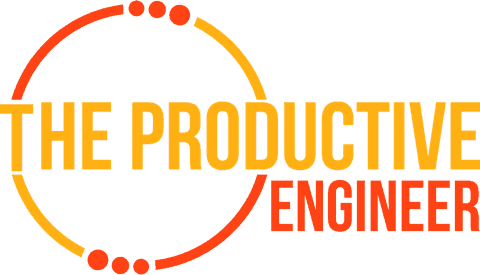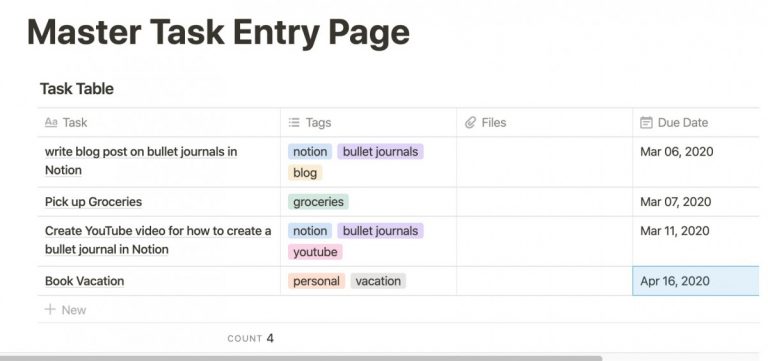Can I Become An Engineer in Tech Without A Degree?
Becoming an engineer is not an easy road. Technology changes constantly and an engineer in the tech space is constantly re-educating his or her self in order to stay relevant to the marketplace. This article will discuss whether engineers working in tech need college degrees.
To answer the question, while certain engineering jobs require a degree, many tech engineering jobs do not require a college degree. In many roles in tech, your skills and certifications are as important, or some cases more important than having a related degree from a university. The key is to do the research for the type of engineer you want to become and build a training plan to get there.
If you are looking to learn new skills, Skillshare is a great option. Skillshare has courses on a variety of topics and can really help you prepare for the next step in your career. To learn more about Skillshare, click the link below:
Skillshare – Find what Facinates You
Are College Degrees Still Relevant For Engineers?
The answer to this question is yes in most cases. Some engineering jobs absolutely require a degree in order to get a job. These types of jobs could require a bachelor’s degree in that specific type of engineering . Typically these type of engineering require some sort of license that is at least partially attained via a degree in that discipline. An example of this is civil engineering. Civil engineering requires a bachelor’s degree in civil engineering or a civil engineering specialty and the curriculum must be approved by the Accreditation Board for Engineering and Technology. Master’s degrees can be required if you want to attain a higher level civil engineering job.
Conversely there are engineering roles that do not explicitly require a college degree. Typically these type of engineering roles value skills over degrees. One example of this is network engineering. Network engineers setup and manage IP networks and components like Routers, Ethernet Switched and Firewall. While some employers will ask for a bachelor’s degree, many will value certifications and proven skills over a degree. For network engineers, certifications from companies like Cisco Systems and Juniper or industry certifications like Network+ will be very valuable to have.

If I Choose to Pursue a Job as an Engineer, How do I get the Skills I Need to be Marketable to Employers?
This is the key question you should absolutely be asking yourself. It is easy to doubt yourself and your ability to achieve something that seems unattainable. Don’t fail into that trap. What most people can achieve is tremendous but it requires making the decision to pursue it and the perseverance to stick with it when it gets tough. Here are the steps I recommend to get started
Step One: Make a List of Your Interests
The first step in any career planning is find out what you like to do or what you are interested in. The temptation will be to look at the engineering role that has the highest average starting salary and does not require a degree. This would be a big mistake.
Becoming an engineer, even without going to college, can be a tough road. Various types of training will consume your spare time. You will be taking time away from friends and family as well as reducing your fun activities to work on training yourself. By writing down your interests and mapping them to potential jobs, you increase the likelihood that you will actually enjoy the training. The last thing you want to do is to get through all the training, get a job and find out you hate it. No amount of money is worth it if you hate going to work everyday.
Step Two: Look at Job Sites to See What Skills or Certifications the Employers are Asking For?

Before you start down the training road, it is imperative that you research job listings for the job you want to see what employers are looking for. In engineering jobs, typically these job requisitions will list in detail exactly what they are looking for. If every listing requires a bachelor’s degree, you know it is a requirement for that type of engineering. If it lists certifications and/or a list of required skills, jot these down. Review as many of these listings as possible and make a spreadsheet or table that has a list of the skills and certifications and indicate how many times each one appears. This will give you a great starting point for the most desired skills and certifications, which will be extremely valuable when making your training plan.
Step Three: Research the Most Common Skills and Certifications in your Spreadsheet
Now that you have your list of skills, sort them by the most frequently requested. Take the top 5 Skills and the top 2 certifications and research them thoroughly. For the skills, google how to get [SKILL] and see what comes back. It likely will be a list of online courses, books and videos. Parse that list of resources down by researching each of them to see what the reviews are. Look for highly rated courses on Udemy or LinkedIn Learning (formerly Lynda.com) and find the most popular, highest-rated courses. Udemy has some great courses and run sales all the time where you can get a courses for as little as 10 dollars. LinkedIn Learning is a subscription service but you get access to their entire catalog of courses so depending on how many courses you need to take, may make sense.
For certifications, google the certification and the first listed results will likely be the home page of the certification. Go there and read up on the certification, recommended study, what the certification exam(s) cover and, if listed, recommended courses/programs to take. Cisco, for example, has the Cisco Networking Academy (link to Cisco Networking Academy) that is program created by Cisco that is offered in community colleges and training centers that prepare you for the various Cisco certifications. Other certifications will recommend a curriculum or third party resources to leverage to prepare for the certification.
You may be tempted to try to get a test dump and take the exam without doing the hard work of learning. Don’t do it. It will do you absolutely zero good to get a certification that you don’t actually have the skills for. Plus you will feel like an imposter and over your head and your potential employers will likely see through you during the interview process. Do the work. It is so worth it on the other side when you get that certification or acquire that skill.
Step Four – Build Your Training Plan
Now that you have done all the research, it is time to build your training plan. You should lay out the courses, books, certification program steps you need to take and how long they will take to complete (courses have the time listed, same with certification courses). Put this in a spreadsheet (Google Sheets works great for this as it is free and easy to use) and start planning when you will actually do the work. Be specific, don’t gloss over it , schedule it. The more explicit you are in planning, the more likely you will actually do it.
Step Five – Commit and Start NOW
This is where the rubber meets the road. Committing. I know this sounds a bit Tony Robbins-esque but trust me on this, you must make a commitment. It will get hard, you will get tired, there will be distractions. Without a firm commitment and resolve, you will find yourself procrastinating and, before you know it, you will be watching YouTube videos or playing video games and your likelihood of becoming an engineer will go down. Also start NOW. Don’t put it off. Sign up for the first course and, if its an online course, start taking it. Get that book and start reading. Build some momentum.
Step Six – Find a Mentor Who is Doing What You Want to Do
This step is crucial but can be the hardest to do. It really helps if you have someone whose brain you can pick and who can give you advise and feedback. If you know someone in the field you want to be in, this is the easiest way to get a mentor. Explain to them that you admire them and that you are looking to get into the field. Ask them for any tips they would give you on how to get started. If you can’t find someone you know, my recommendation is to sign up for LinkedIn (Link to LinkedIn). LinkedIn is a social network for business professionals. I know what you are thinking, a social network, really? But hear me out, LinkedIn is a good resource for seeing what people in your industry are discussing. You can read what they are sharing and comment on it. This is a good way to build some rapport with others on the site that are in the field you want to enter. Once you have interacted with someone a couple of times, introduce yourself. Tell them you are in the process of preparing to be an engineer in this field and if they have any suggestions on what you could be doing to move yourself forward. Most people want to help, especially if you are gracious in your request. Keep it simple and don’t bombard them with questions. Just ask them for that one piece of advice. If they respond and give you some advise or a suggestion, thank them and ask if it is ok to contact them in the future if you have another question.
Step Seven – You Have Finished Training, Now What?
Once you are ready, now is the time to start applying for jobs. This can be a sobering experience as applying for jobs and interviewing can be a trying experience. My advise to you is this: Be open. What I mean by this is you need to show your potential employer that you are open to learn, open to try new projects, open to push outside your comfort zone, Open to whatever role they want you to start in. You want to get your foot in the door. If it is a junior engineering role, embrace it. If it is a trial hire to see how you work out, embrace it. Once you are in the door, make it impossible for them to get rid of you. Eagerly accept your assignments. Push yourself to learn how things work there and what adjacent skills are needed and learn them. Be the first one in. If there is a task that no one on the team wants, volunteer for it. Become the glue person on your team. The one who always steps up . Your manager wants people like that. People who are hungry, who want to get better, who want the team to succeed. Make yourself indispensable.
Check out our Resources page
Check out our resources page for the products and services we use everyday to get things done or make our lives a little easier at the link below:
Summary
Getting into engineering in tech, while a difficult road, has in some ways never been easier. There is huge demand for good engineers and there are more training programs, courses and books than ever. The costs of getting these skills has also never been lower due to the advent of online video course sites like Udemy, LinkedIn Learning, Treehouse and others. The key is finding what you want to do and making your plan. Good luck.
Helpful Links
LinkedIn Learning
Coursera
Udemy
Team Treehouse
EdX
Other Articles You Might Like
How to Create a Project Tracker in Notion for Mac
Link to How to Create a Project Tracker in Notion
How to Organize and Search Notes in Evernote
Link to How to Organize and Search Evernote
How to Create a Mind Map on a Mac
Link to How to Create a Mind Map on a Mac









